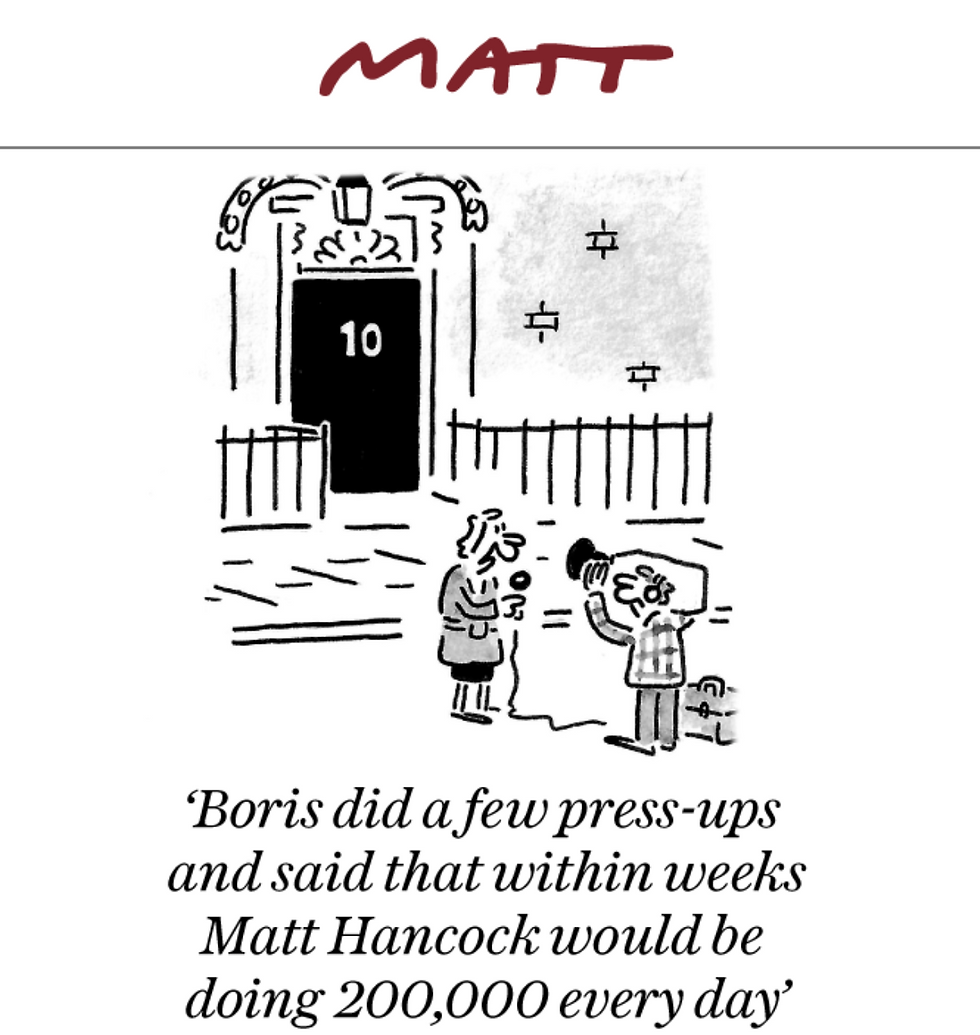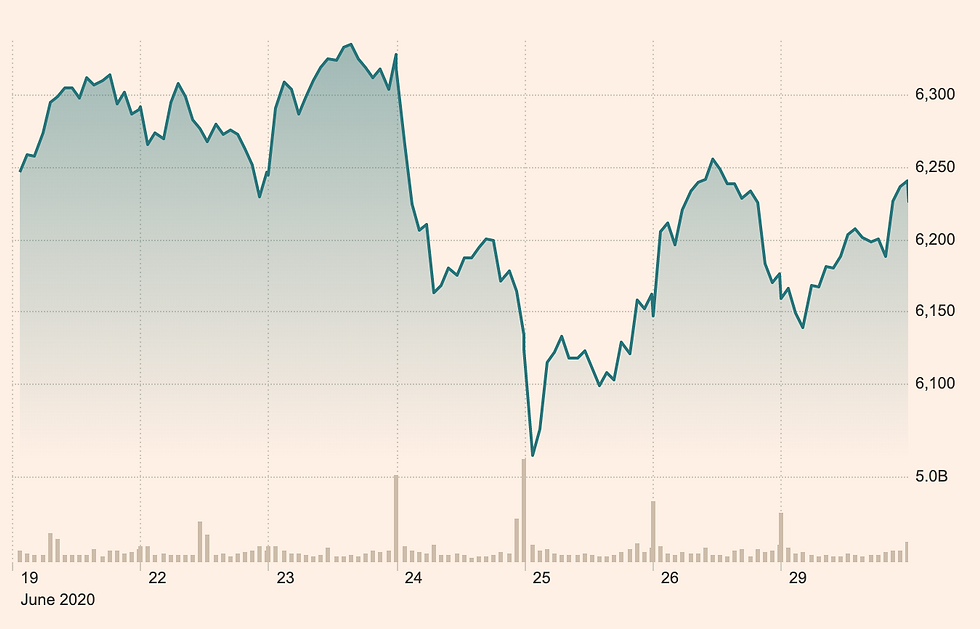- Charlotte Street Partners

- Jun 30, 2020
- 6 min read
Sleeping at the office
Written by Katie Stanton, associate partner
Edited by Iain Gibson, associate partner
Good morning,
For now, I am consumed by my immediate and, more specifically, improving it.
I pore over rich, shadowy Farrow & Ball greens for a new, imaginary flat; swiftly assemble my sixth Pinterest board dedicated to colour-coded reading rooms; or stalk very grown-up crumpled-cum-lovely linen sheets that Instagram thinks I need. Hours go by.
All the while, my fingers spasm under the weight of my phone, but I go on, still thirsty for more as I morph into the true human embodiment of the heart eyes emoji, desperately scrabbling to find a colour match for ‘green smoke’ that doesn’t bankrupt me and my family.
Then, inevitably, comes the feeling of gross selfishness and an hour or so of self-loathing. Of course, all this time stewing on my own horridness just makes it worse, and I eventually muster the energy to harrumph myself down the stairs for another home-cooked dinner feeling more deflated than ever.
I think what I am trying to do is called nesting. Pregnant women do it – although I am party only to a food baby. It is an animal survival instinct designed to protect new-born offspring from predators, to shroud your space in safety.
This crisis has left many of us feeling uneasy and alien in our homes. All of a sudden, work has violated our wind-down zones, and home has infringed on the professional. There is brutal inadequacy in craning over a laptop propped to eye-level on War and Peace (insert your own chunkiest book here), and having to issue yet another round of stark admonitions to possible interlopers before big Zoom meetings, while – later that same day – trying to relax with a glass of vino within those same four walls to a cacophony of popping Teams notifications.
Working from home of course has its benefits. Employers can see now that being in the office has little bearing on the standard of work, enabling those who need it – namely parents, those with disabilities or those more generally exhausted by the pace of the whole thing – to be more flexible while not feeling like the exception or the outcast for shunning a commute.
But, as many of us are now realising, our spaces are not up to scratch. If working from home is here to stay, we’re going to need that nest.
So, firstly and most importantly, I am going to feel less guilty about gorging on Pinterest and bulk ordering dried pampas grass.
And secondly, with many companies now looking to downsize, anticipating a cut to their property outgoings as their workforce shifts to a couple of days a week or more at home, there might be some excess cash floating around immediately post-crisis. Of course, there are priorities a-plenty more important than a comfy desk chair and a statement wall.
But leaders should also keep in mind the importance of their people, in the link between their wellbeing and productivity, how this interacts with the viability and comfort of their spaces – and consider reinvesting in them.
News
Stricter lockdown measures have been announced in Leicester, including the closing of non-essential shops and schools, as Covid-19 cases rise. The loosening of restrictions for pubs and restaurants, planned for the rest of England on Saturday, will also not be taking place..
Beijing has reportedly passed a wide-reaching national security law for Hong Kong, which many fear could be used to override existing legal processes and further erode the territory’s civil and political freedoms.
Members of Australia’s Special Air Service committed war crimes in Afghanistan, according to a senior commanding officer. Major-general Adam Findlay blamed “poor moral leadership” for the unlawful killings of captured fighters and civilians. (£)
Business and economy
The prime minister will later today announce a “new deal” which puts jobs and infrastructure at the centre of the government’s plans to soften the economic impact of coronavirus. Boris Johnson will underline his commitment to “bring forward” £5bn and “build, build, build”, upgrading Britain’s infrastructure and skills to fuel economic recovery across the UK.
Britain’s financial watchdog has lifted a ban on the payment activities of Wirecard’s UK arm, restoring services for millions of customers who had been temporarily unable to access money or make payments through fintech apps relying on its technology. (£)
India has banned 59 of China’s biggest mobile phone apps, including TikTok and WeChat on the grounds that they pose a threat to the country’s security. The Ministry of Electronics and Information Technology accused the apps collectively of breaching the privacy of Indian users and mining their data. (£)
Columns of note
Writing in City AM, Matthew Lesh, head of research at the Adam Smith Institute, argues that market environmentalism is key to protecting the planet. Climate politics, he poses, is dominated by anti-capitalists “who see little to no role at all for markets”. But instead of adopting doomsday defeatism and seeking to destroy our entire system, we should look to those harnessing ingenuity in a format that is proven to work: the markets.
India Bourke issues a warning for nature, the pandemic’s latest victim, in the New Statesman. We experienced a brief period of self-congratulation a few months ago; all types of flora, fauna and wildlife were reportedly “returning” as we shunned travel and cowered indoors. But, as global lockdowns lift, prospects for the natural world look more fraught than ever.

Source: The Telegraph
Markets
What happened yesterday?
Stock markets on both sides of the Atlantic rebounded today as optimism over easing lockdowns superseded fear of surging coronavirus infections. The FTSE 100 rose 1.08% to 6,225.77, while the FTSE 250 climbed 0.5% to 17,198.66. Meanwhile, the Dow Jones finished up 2.3%, led by Boeing which surged 14% after the Federal Aviation said it could begin test flights of its grounded 737 Max jets.
The pound fell sharply against the euro, dropping below €1.10 to touch its lowest level in three months as investors prepare for Britain’s infrastructure spending plans to be revealed.
In company news:
BP has struck a $5bn deal to offload its petrochemical business to Sir Jim Ratcliffe’s Ineos, in a surprise move to help bolster its balance sheet.
Gilead Sciences has said it will charge governments $2,340 for a five-day course of remdesivir, a drug that has been shown to shorten the time it takes Covid-19 patients to recover.
UK burger chain Byron is in last-ditch talks over a rescue deal as its private equity owners look to secure the sale of parts of the business through a pre-pack administration. (£)
Cosmetics maker Coty has agreed to buy a 20% stake in Kim Kardashian West’s make-up brand KKW for $220m. The deal values the three-year-old company at $1bn.
What's happening today?
Finals
Aseana Prop.
Catenae In Plc
Civitas Social Housing
D4t4 Solutions
Solid State
Sysgroup
Interims
Cloudcoco
On The Beach
AGMs
4d Pharma, Abstd Euro Log., Allied Minds, Animalcare Grp, Armadale Capital, Asa Int, Asiamet Res, Attraqt Group, Bmo Comm Prop., Borders & Sth., Cadogan, Centaur, Cobra Resource, Crimson Tide, Ecsc Group, Energiser, Equals Gp, Fireangel, Fox Marble Holdings, Good Enrg, Gresham House, Gulf Marine Services, Global Yachting Group, Henry Boot, Impellam, Ingenta, Inspecs Group, Inspired Energy, Instem, Iofina, Keller, Keystone Law G., Lon.sec, Lsl Prop, Lxi Reit, Maintel, Metal Tiger, Mustang Energy, Non-standard, Petropavlovsk, Phoenix Global Resources, Poll Street Sec, Ra Internation, Rdl Real, Reach4entertain, Robinson, Rurelec, Safestay, SIG, Standard Life, Surgutneft, Tiger Resource, Tissue Regenix Group, Trans-Siberian Gold, Universe, Vianet Grp, W Resources, Woodbois, Xtract
UK economic announcements
(07:00) Nationwide House Price Index
Int. economic announcements
(07:00) Import Price Index (GER)
(14:45) Chicago PMI (US)
(15:00) Consumer Confidence (US)

Did you know?
The East German Stasi often targeted dissidents by breaking into their homes and subtly changing things - moving furniture, changing the brand of tea, rearranging photos - so the victim thought they were going crazy.
Parliamentary highlights
House of Commons
Oral questions
Foreign and Commonwealth Office (including Topical Questions)
Ten-minute rule motion
New Homes (New Development Standards) - Sir Geoffrey Clifton-Brown
Legislation
Immigration and Social Security Co-ordination (EU Withdrawal) Bill: Remaining Stages
Adjournment
Black women and domestic abuse - Meg Hillier
House of Lords
Oral questions
Government commitment to "explore the legal and practical challenges of limited reform relating to the law on marriage and religious weddings" - Baroness Cox
Government support to assist universities in dealing with the impact of the COVID-19 pandemic - Baroness Randerson
Supporting women's sport after the COVID-19 pandemic - Lord Randall of Uxbridge
The situation on the border between North and South Korea and the 1953 Korean Armistice Agreement - Lord West of Spithead
Legislation
Pension Schemes Bill [HL] - Report stage (day 1) - Baroness Stedman-Scott
Scottish parliament
No meetings scheduled.

Comments